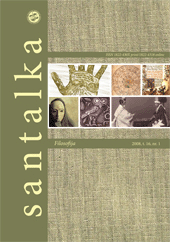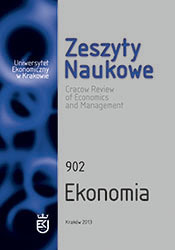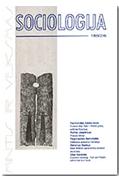Keywords: corruption; Eastern Europe; global crises
Corruption is a widely studied phenomenon in the social sciences. Although pervasive, corruption is of difficult empirical measurement since it refers to a wide range of social, economic and political practices. Moreover, there is not a single methodological approach to corruption due to its complexity and high cultural variability. In Eastern Europe corruption is described as strongly dependent on the socialist experience, as well as on the dynamics of post-socialism. Following EU accession significant changes have been introduced to fight corruption and to improve institutional performance, however, the recent economic recession, coupled with the style of EU structural funding schemes may seriously undermine the success of these efforts bringing to the forefront problems of transparency, loss of trust and credibility of state and local government administrations.
More...
Keywords: synergy; language; language of synergy; scientific knowledge; transdisciplinarity.
The issue of the formation of present-day scientific knowledge is viewed in the paper through the prism of language. Language is seen here not merely as an external form vis-a-vis the content of scientific knowledge,but rather as the mode of emergence and existence of scientific knowledge as a certain reality(Shverev2001:509), the one that evolves as a result of cognitive and communicative practices in transdisciplinary studies. The mutual influence of the language of synergy and the synergy of language leads to a new unity of scientific experience and gives rise to the philosophy of transdisciplinarity (Киященко 2006: 17).
More...
Keywords: reality; fiction; environment; city; existential creation; phenomenology of creation
The paper deals with relation between reality and fiction. The project of phenomenology of creationis presented in this context. According to the author, reality is an environment of our becoming. We fill this environment with our objects, desires, and expectations. Reality and fiction make two poles of creative tension. Human creation, i.e. culture is developed between these two poles. The author links culture with existential creation, i.e. with creation of life story. It is stressed that life story is analogous not to a diary but to a novel where every event takes part in the existential whole. An existential novel is born in a particular spiritual environment which is renewed by its inscription into this environment. The author refers to existential events as phenomena which being inscribed into our living whole direct the stream of events. The author uses the metaphors of the theatre as a public space and the river as a reative stream. It is stated that our existence is developed as polyphonic interrelation between a part and the whole. Different modi of existential creation like realization, working, embodiment, spiritualization and their links are analysed. Working is connected with a private domestic environment the created works in which should be prooved in a public space of the city. It is discussed on an opinion that the national language is the main modus of nationality. It is stated that a multinational environment of a capitol is the best school of national existence. It is showed that a theoretical model of phenomenology of creation is useful in the interpretation of historical and cultural phenomena.
More...
Keywords: rule following; practice; habitus; reflection; alternative.
The paper is devoted to the problem of rule following which is a traditional problem of the philosophy of language. Language communication is represented as a rule submitted activity. Two strategies of rule following are described. One of them is considered as habitual. It is strictly correlated with a system of social institutions and practices. The concept of habitus, developed by P.Bourdieu, is used forfuller investigation of this strategy. The other strategy is based on reflection. Reflective act implies alternative rules of communicative action and is correlated with responsible choice.
More...
Keywords: methodology; history of economics; neoclassical economics; economic theory
The purpose of the analysis is to present Edward Taylor’s theory concerning the meaning of static and dynamic approaches. This Poznań economist, who advocated the approach of a research programme initiated by A. Marshall, called for a broadening of the perspective based on thinking in terms of equilibrium models with the dynamic approach. This would make it possible to answer questions prompted by those determinants that shape exogenous variables omitted in reflections based on both the model of general equilibrium and partial equilibrium.
More...
Keywords: business risk; mitigation; process; uncertainty
Potrzeba zarządzania ryzykiem działalności i jego mitygacji przez podmioty gospodarcze jako konsekwencja niepewności i niestabilności współczesnych rynków międzynarodowych The purpose of this paper is to formulate the problem of managing and mitigating the risks involved in the activities of business organisations operating in both domestic and international markets in the light of the fact that international markets are unstable. In the absence of coherent, unified and widespread mitigation mechanisms at the level of national economies and in the face of the speculative strategies being commonly adopted by businesses, international financial markets are becoming increasingly turbulent and companies must cope with rising expenses. Risk management should be a comprehensive process involving all aspects of the company’s business. It can be defined as taking a proactive approach to any potential risks and choosing an appropriate strategy for a given company to minimise the dangers it may face.
More...
Keywords: risk; uncertainty; risk measures; risk structure
Risk is an inherent part of economic activity. In practice we distinguish many categories of risk. These classifications are useful from a practical point of view, because they help to answer the question of where sources of risk may be identified. The main goal of this paper is to present basic definitions of risk, risk structures and measurement methods. The paper is structured with that goal in mind. The author first presents a review of the literature on defining risk, analyses definitions of risk and uncertainty and looks at the measures and the structure of risk. On the grounds of his analysis he ascertains that numerous types of risk exist in every enterprise, all of which to varying degrees affect the business’s proper functioning. The analysis of the sources and structures of risk allows him to point out threats accompanying the different kinds of risk and to put forward the most effective measures for minimizing the influence of risk on financial results.
More...
Keywords: European social model; welfare state regimes; social policy; social and economic inequalities
The European social model is a vision of society that combines sustainable economic growth with the reduction of economic and social inequalities through income redistribution, ensuring a high level of social security and universal access to basic social services. Some economists argue that the last three decades have witnessed a rapid transition towards a new minimal welfare state, in the wake of the rising importance of services (post-industrialism), globalisation, population ageing, changing family and gender relations. In that perspective, the European social model is more chimera than reality. The author argues that the existing social democratic model of the welfare state is likely to be a response to the challenges social policy currently faces. Furthermore, the social democratic model corresponds well with the assumptions of the European social model. With the transformation of the early 1990s, Poland abandoned its socialist welfare system. Although it is debatable whether current social policy in Poland can be classified according to any of Esping-Andersen’s well-known welfare types, changes in the labour market will be crucial for the size and shape of the Polish welfare state in the future. The sustainability of the generous welfare state ultimately depends on the citizens’ participation in the labour force participation.
More...
Keywords: deregulation; labour market; flexible forms of employment; labour market flexibility
The labour market is undergoing changes in structural transformations in the world economy, globalisation and technical progress and the development of computer techniques. The process of deregulation is inextricably linked with economic transformations in the world and is a response to the faster pace of these transformations. Those changes provide an additional competitive edge to business and national economies, but also create problems with the social security of persons employed on flexible terms. The labour market must be deregulated so that market participants can adapt to the changes resulting from new needs and economic threats. Flexible solutions, and in particular diverse forms of employment contracts, allow employers to react more quickly to changes in the business cycle and structural changes in market demand. While many firms have a flexible work policy, they continue to reward face time and full-time work. On the one hand, new flexible forms of employment may bring about a chance to enter the labour market. However, there can be no doubt that these new jobs are precarious and contain new risks, implying as they do low wages and a low level of social protection or indeed no protection at all. Labour market deregulation is therefore a necessity which the modern economy must contend with ‒ because without a flexible attitude, no market is able to rise to the challenges of its time.
More...
Keywords: green development; green economy; low-carbon economy; industry
Politicians as well as scientists are involved in the fight against climate change. People around the world are more aware of the need to be concerned about the environment. But the most important issue is the introduction of structural changes in economies, starting with changes in different branches of industry. This article presents examples of European and American companies bringing in new technologies to improve production processes so as to be more efficient and low-carbon emitting. It is also important to introduce changes in finished products that should be more environmentally friendly. Attempts have been made by companies functioning in the same industry to promote environmentally friendly technologies. That co-operation extends to the search for methods to help take advantage of by-products in an economical way as well to protect the natural environment.
More...
Keywords: clusters; development; Małopolska; exogenous factors; innovation
Given Małopolska’s strategic location, good transport infrastructure and plan to support clusters, it is a perfect location for future cluster initiatives and clusters themselves. Małopolska has a vibrant academic culture and excellent research facilities, and, further, boasts land characterised by a high concentration of industrial enterprises, information technology and outsourcing services that prioritise innovation and increasing efficiency. The high concentration of business competition in the area sharpens and stimulates the growth of entrepreneurship, which can certainly be achieved in a cluster that favours the formation of cluster initiatives while new economic clusters with high growth potential are also identified. The development of clusters may well be stimulated by broad access to external sources of business financing that significantly support the initial phase of growth. Unfortunately, all is not perfect ‒ spending on research and development remains relatively low, as does the interest small businesses show in cooperating with the research community.
More...

Keywords: Civilization Analysis; Vytautas Kavolis ir Benjaminas Nelsonas;
The article deals with famous Lithuanian sociologist Vytautas Kavolis (1930-1996) contribution to Civilization Analysis, one of the modern approaches to the civilizational sociology. Vytautas Kavolis understanding of civilization, its organization and dynamics, as well the methodology developed by him, is compared with that of Benjamin Nelson (1911-1977), a begetter of Civilization Analysis. As compared to B. Nelson, V. Kavolis proposes not a few innovations. The most original parts of V. Kavolis civilizational sociology are conception of civilization’s organization and that of civilizational dynamics. Developing them V. Kavolis employs formalistic approach broadly. His attention is concentrated on the patterns of structural relationships between meanings (formal designs), theory-practice articulation modes and their changes. The least differences between V. Kavolis and B. Nelson are observable in the sphere of methodology of research of civilizations.
More...
Keywords: empirical research of identity; examination of specific character of a qualitative research of cohort generation identities in the XX century’s Lithuania;
Any empirical research of identity confronts a serious methodological issue. If social scientists categorise different human settings in society with assignment of certain social features as a base of collective identity, is it appropriate to talk about a certain identity as a really existing phenomenon at all? Our attempts to answer this question are based on the examination of specific character of a qualitative research of cohort gene ration identities in the XX century’s Lithuania. The article discuses a general meaning of identity concept and its connections with autobiographical narrative, defines concepts of collective and individual identity, theorises the process of social identity construction within social group and in the cases of social category, analyses dimensions of nominal and real identity. Discussion of social identity construction is based on the idea of Anselm Strauss that life story narratives involve both personal and collective / social history. Biographical processes refer not only to individual but also to collectivities. Individual experiences are very often shaped by similar events. Similar experiences are treated as a symbolic universe, in the words of P. Berger and Th. Luckmann. It is a realm of common values advanced and shared due socialization. This universe in biographies is expressed through individual perception and narration or, according to A. Strauss, through symbolic representations. Those representations are experiential perceptions of certain structural social and historical circumstances. Such premise allows us to treat autobiography as narrative, where individual representations of identity intermingle with a general structure of social identity through merge of personal feelings, common historical experience, and shared worldview. The common experiences consolidate humans into social units called cohort generations. Mentioned theoretical assumptions give us a good reason to search for a common identity of cohort generations in the individual biographies. Consequently, scientifically exploring identity of cohort generations, social scientists have to comprehend and focus on social categories and practices, which are empirically represented by the authors in autobiographies. It means that such point of view acknowledges a real appearance of identity and gives a nominal dimension to it.
More...
Keywords: modern understanding of power;
The phenomenon of power is implicit in numerous critiques of modern sciences and their methods, resulting in the crisis of rationality. Our analyses will follow two intentionalities, the vertical and the horizontal, showing that the modern scientific rationality assumes principles which exclude the vertical.
More...
Keywords: modern understandings of freedom; autonomy; and equality of the citizens of a democratic political community and its ethos; primacy of communication over power and domination; Democratic Principles; Autonomy;
Contextualizing Democratization and the Practice of Social Research
More...
Keywords: cultural sociology; Methodological premises and actual directions of sociological research on culture
The article is devoted to the problems of cultural sociology. Methodological premises and actual directions of sociological research on culture are discussed. The importance and practical advantage of investigation of cultural needs of inhabitants is stressed. The aim of the paper – to describe actual cultural needs of Lithuanian inhabitants presenting representative and statistically reliable data on their attendance and evaluation of varies cultural institutions. According to the data obtained the most positive ratings and highest attendance is given to such cultural institutions or events as festivals/fairs and concerts. It was ascertained that the necessity of some cultural institutions is not directly related with their attendance. The interdependence between cultural needs and age, education level and living location of respondents is analysed.
More...
Keywords: specifying bases of social motivation; the basic social needs and interrelations among them;
The present article is aimed at specifying bases of social motivation, defining the basic social needs and interrelations among them. A basic social need is defined as such a need, which is not a product of culture, but constitutes a pre-condition for formation of a social group, which in turn creates the culture itself. Three such conditions are identified: attention of group members to each other, positive evaluation of each other, and care for each others well-being. A person experiences these conditions as needs for attention, esteem, and care. These three needs are interrelated in a hierarchical manner. The need for attention is the least important, while the need for care is the most important, as satisfaction of this need is both necessary and sufficient condition for formation and survival of a social group. Also, compared to the needs for attention and esteem, satisfaction of the need for care requires the most complex means. Despite of such subordination of the need for attention and the need for esteem to satisfaction of the need for care, both needs for attention and esteem should be considered as separate needs, as satisfaction of these needs constitutes pre-condition for satisfaction of the need for care and hence these needs acquire an independent motivational value.
More...
Keywords: adaptation of the imported scientific terms into Lithuanian language; gender studies; terms lytis -sex and gender in Lithuanian academic language;
The article is devoted to encourage a scientific discussion about using the both terms lytis -sex and gender in Lithuanian academic language or at least to pay more attention to that issue. A present translation of both terms into only lytis-sex often leads up to misrepresenting the meanings of the original terms. It is argued that distinction between both terms lytis -sex and gender in women’s and gender studies, and attention to the history of the term gender helps the most adequate in meaning translation of English political and scientific phraseology into Lithuanian language. Gender mainstreaming as a case study of the problems of the translation into Lithuanian language is presented.
More...